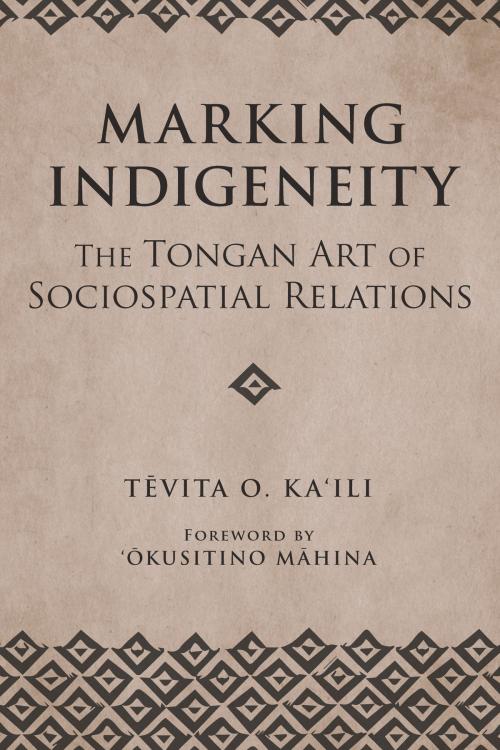Marking Indigeneity
The Tongan Art of Sociospatial Relations
Nonfiction, Social & Cultural Studies, Social Science, Anthropology, Cultural Studies| Author: | Tevita O. Ka'ili | ISBN: | 9780816537525 |
| Publisher: | University of Arizona Press | Publication: | October 24, 2017 |
| Imprint: | University of Arizona Press | Language: | English |
| Author: | Tevita O. Ka'ili |
| ISBN: | 9780816537525 |
| Publisher: | University of Arizona Press |
| Publication: | October 24, 2017 |
| Imprint: | University of Arizona Press |
| Language: | English |
Tongans, the native people of the Kingdom of Tonga in the South Pacific, are a highly mobile indigenous group. Like their seafaring ancestors, they are constantly on the move across ta (time) and va (space). Carrying their traditions with them, Tongans living in Maui, Hawai‘i, actively mediate those dimensions by extending the time-space structure of certain activities and places in order to practice tauhi va—the marking of time to sustain harmonious relations and create beautiful sociospatial relations.
In Marking Indigeneity, Tevita O. Ka‘ili examines the conflicts and reconciliation of indigenous time-space within the Tongan community in Maui, as well as within the time-space of capitalism. Using indigenous theory, he provides an ethnography of the social relations of the highly mobile Tongans.
Focusing on tauhi va, Ka‘ili notes certain examples of this time marking: the faikava gatherings that last from sunset to sunrise, long eating gatherings, long conversations (talanoa), the all-night funeral wakes, and the early arrival to and late departure from meetings and celebrations. Ka‘ili also describes the performing art of tauhi va, which creates symmetry through the performance of social duties (fatongia). This gives rise to powerful feelings of warmth, elation, and honor among the performers. Marking Indigeneity offers an ethnography of the extension of time-space that is rooted in ancient Moana oral traditions, thoughtfully illustrating the continuation of these traditions.
Tongans, the native people of the Kingdom of Tonga in the South Pacific, are a highly mobile indigenous group. Like their seafaring ancestors, they are constantly on the move across ta (time) and va (space). Carrying their traditions with them, Tongans living in Maui, Hawai‘i, actively mediate those dimensions by extending the time-space structure of certain activities and places in order to practice tauhi va—the marking of time to sustain harmonious relations and create beautiful sociospatial relations.
In Marking Indigeneity, Tevita O. Ka‘ili examines the conflicts and reconciliation of indigenous time-space within the Tongan community in Maui, as well as within the time-space of capitalism. Using indigenous theory, he provides an ethnography of the social relations of the highly mobile Tongans.
Focusing on tauhi va, Ka‘ili notes certain examples of this time marking: the faikava gatherings that last from sunset to sunrise, long eating gatherings, long conversations (talanoa), the all-night funeral wakes, and the early arrival to and late departure from meetings and celebrations. Ka‘ili also describes the performing art of tauhi va, which creates symmetry through the performance of social duties (fatongia). This gives rise to powerful feelings of warmth, elation, and honor among the performers. Marking Indigeneity offers an ethnography of the extension of time-space that is rooted in ancient Moana oral traditions, thoughtfully illustrating the continuation of these traditions.















